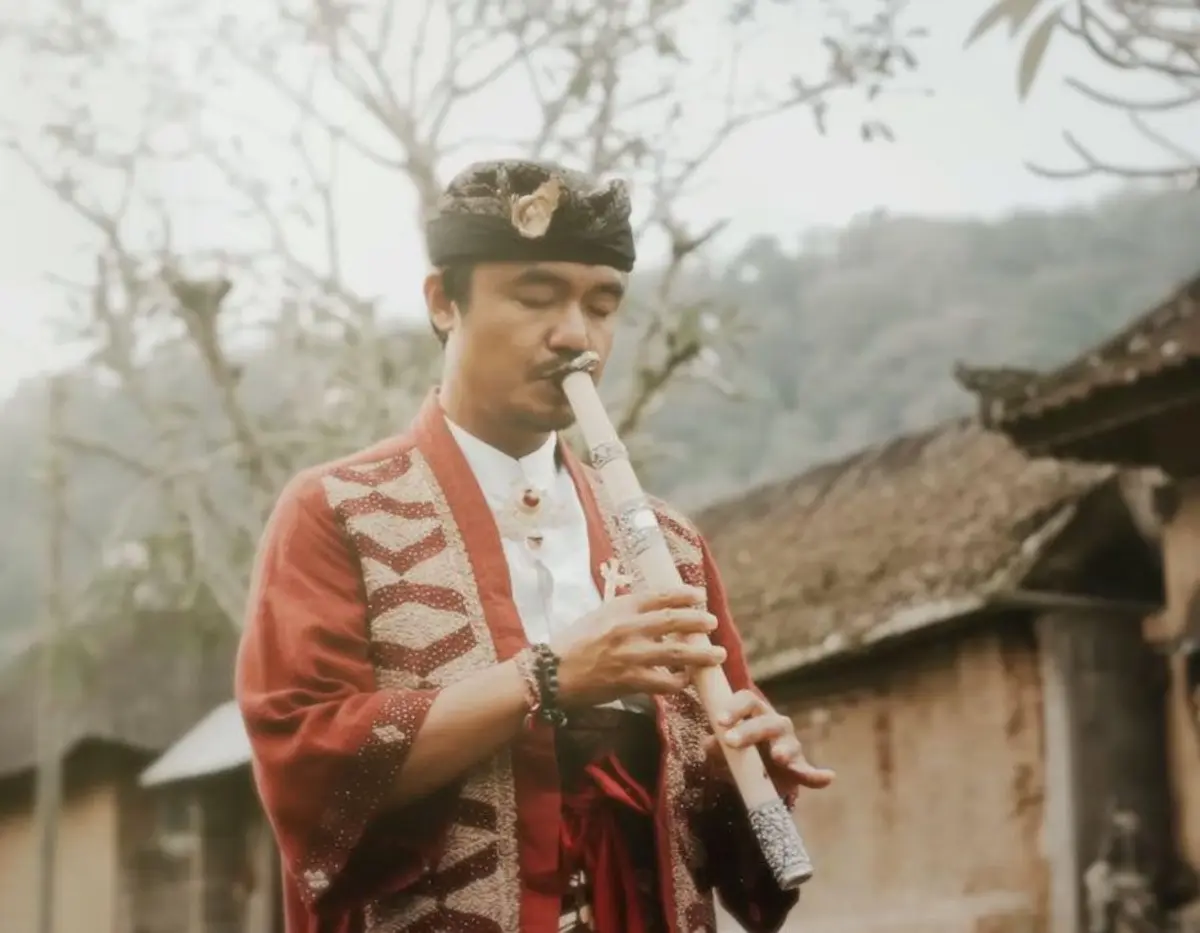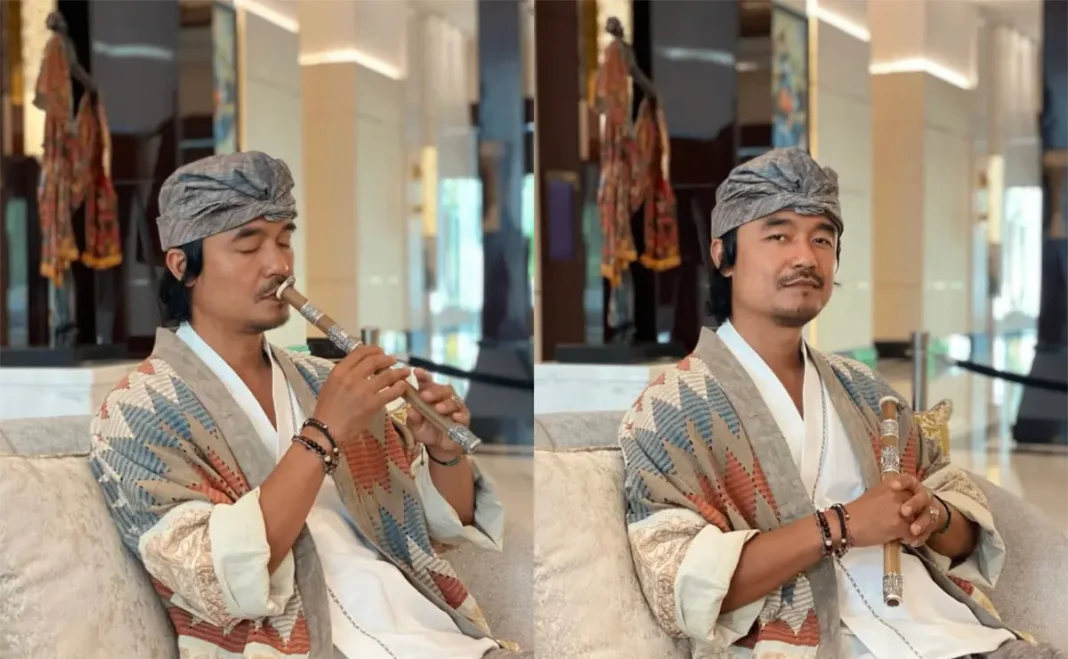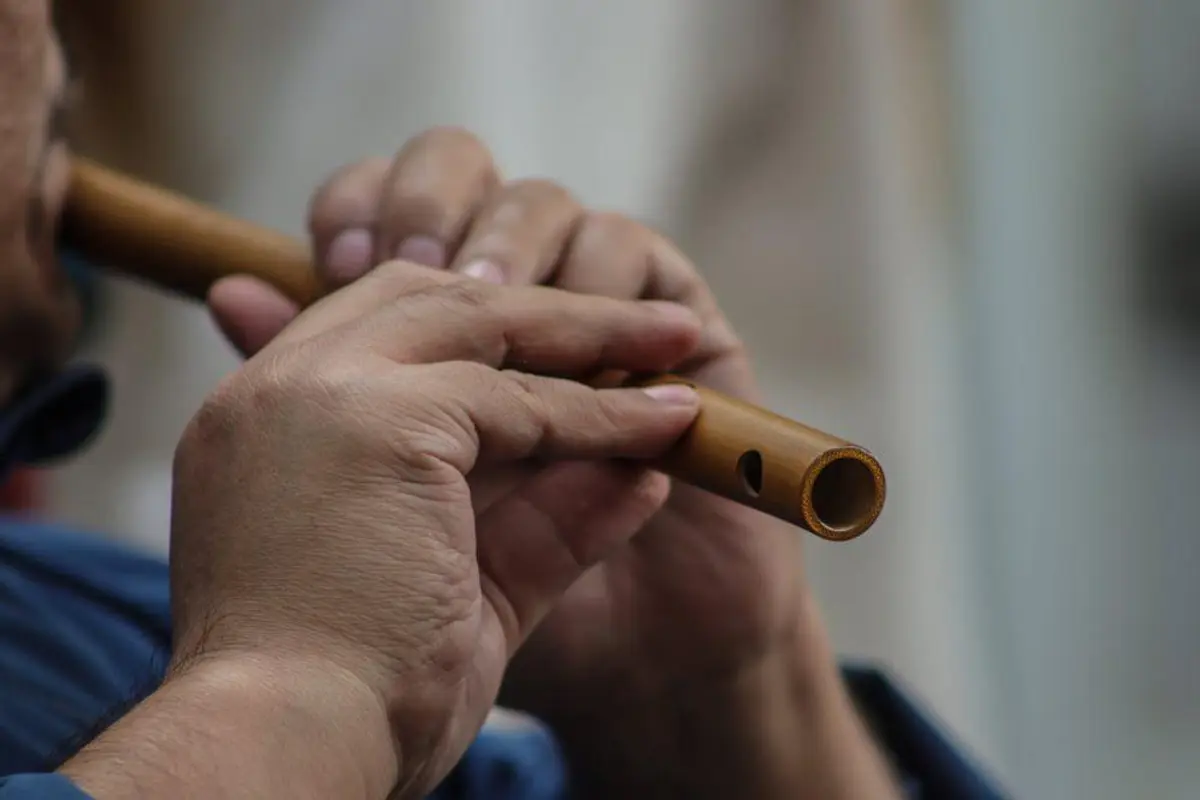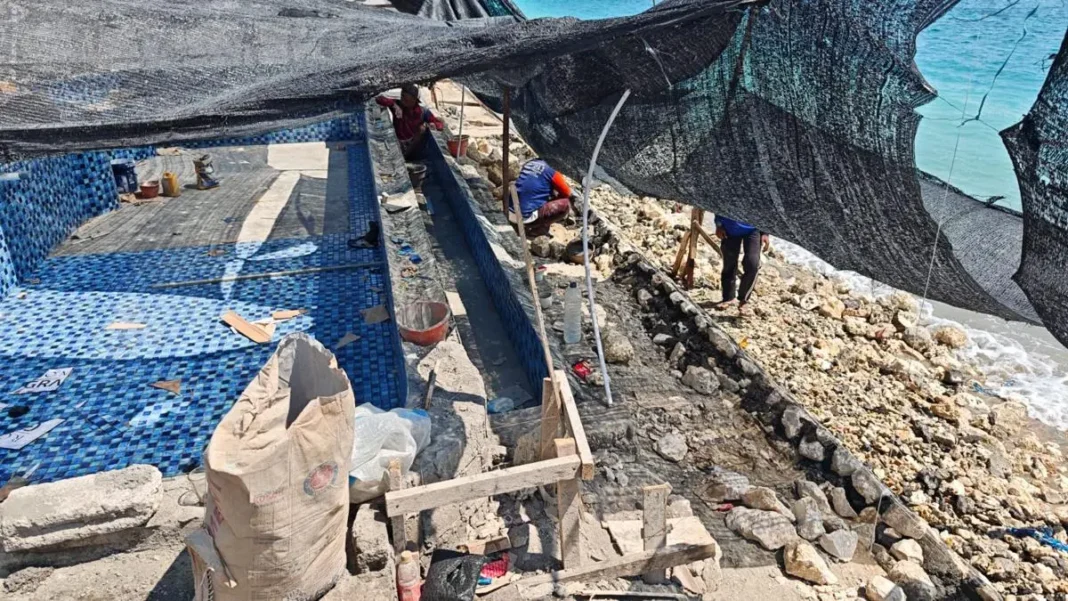Bamboo Flute Master Gus Teja – If you’ve ever had a massage in a Ubud spa, sipped a cocktail in a Seminyak beach club, or even just waited for your luggage at Denpasar Airport, you’ve almost certainly heard his music. The serene, uplifting melodies of Gus Teja’s bamboo flute are the unofficial soundtrack to the Bali experience for millions. But here’s the twist: while his music fills the air, his pockets, from royalties, remain empty. And he’s… mostly at peace with it.
This is the story of Agus Teja Sentosa, a maestro whose instrument of choice is the humble suling, and whose philosophy is as resonant as his music.
From Ubud’s Gamelan Groups to a World Music Stage
Gus Teja’s story is a classic Bali tale of art being absorbed through the very air one breathes. Growing up in the cultural heartland of Ubud, his childhood nights were not filled with cartoons, but with the hypnotic rhythms of gamelan and the graceful movements of traditional dance.
“Before I even officially joined a gamelan group in Peliatan village, I could already play the flute a little,” Gus Teja recalls with a chuckle. He was that kid—watching the old masters, absorbing their techniques, and even crafting his own flutes from bamboo. For him, observation was his education.

The One-Man Orchestra: Crafting Instruments and a Career
This hands-on creativity didn’t stop at the flute. By high school, Gus Teja was a one-man music factory, crafting an entire family of bamboo instruments—suling, tingklik, and more—so impressive that even art students from ISI Denpasar were buying them.
This passion culminated in 2008 with the formation of Gus Teja World Music, a band built entirely on the unique sounds of his own handmade creations (except for the trusty guitar). This unique sound found its home in his debut album, Rhythm of Paradise. The track Morning Happiness became an instant classic, a tune so soothing it’s now synonymous with Balinese relaxation.
The Royalty Elephant in the Room: A Battle He Chooses Not to Fight
Now, let’s talk about the multi-million rupiah question: why doesn’t this internationally recognized artist see a penny from the countless hotels, spas, and airports that use his music?
The truth is, he’s been fighting this battle longer than the recent royalty debate has been viral. A world-renowned fashion brand once used his music without permission—a case he settled but prefers to leave in the past. He holds the copyright certificates, yet the violations continue.
He’s been invited to join the national collective management organization (LMKN) but declined after hearing horror stories from musician friends in Jakarta about a broken, unfair system. The recent case of a famous singer receiving Rp 700,000 instead of Rp 60 million only confirmed his fears.
“From all the hotels, restaurants, and spas that play my music in Bali, I have not received a single rupiah in royalties. Not one,” he states plainly. “For decades.”
The Path of Good Karma: A Radical and Profound Choice
So, is he angry? Disappointed, yes. But his response is rooted in a deeply Balinese and Buddhist principle: the law of karma.
“I call it the path to good karma,” he explains. “I can’t expect much from the government system, so I choose to let it go. I believe sustenance is already arranged by a higher power.”
This isn’t a passive surrender; it’s an active choice to not be consumed by bitterness. However, don’t mistake his serenity for weakness. He is fiercely critical of the system, calling for radical transparency and fairness. “There can be no lies,” he insists. “Everyone must know how the money is collected and distributed.”
His Simple Request to Bali’s Businesses: An Invitation, Not an Invoice
Instead of chasing royalties, Gus Teja offers a profoundly simple solution, a middle path that benefits everyone. His message to hoteliers and restaurateurs is this:
Open your hearts. If you love my music enough to play it for your guests, love the artist enough to invite him to perform.
“This way, we can grow together,” he says. “It’s about professional ethics. Don’t just play my music for free and then hire international artists for your events. Invite the local musicians you already support with your airplay.”
It’s a powerful idea: transforming a one-sided transactional relationship into a collaborative cultural partnership. It’s a call for the soul of Bali’s tourism to remember and respect the artists who give it its authentic sound.
In the end, Gus Teja isn’t just a master of the flute; he’s a master of perspective, reminding us that sometimes the most powerful note is the one of graceful integrity.
Source : Idntimes






